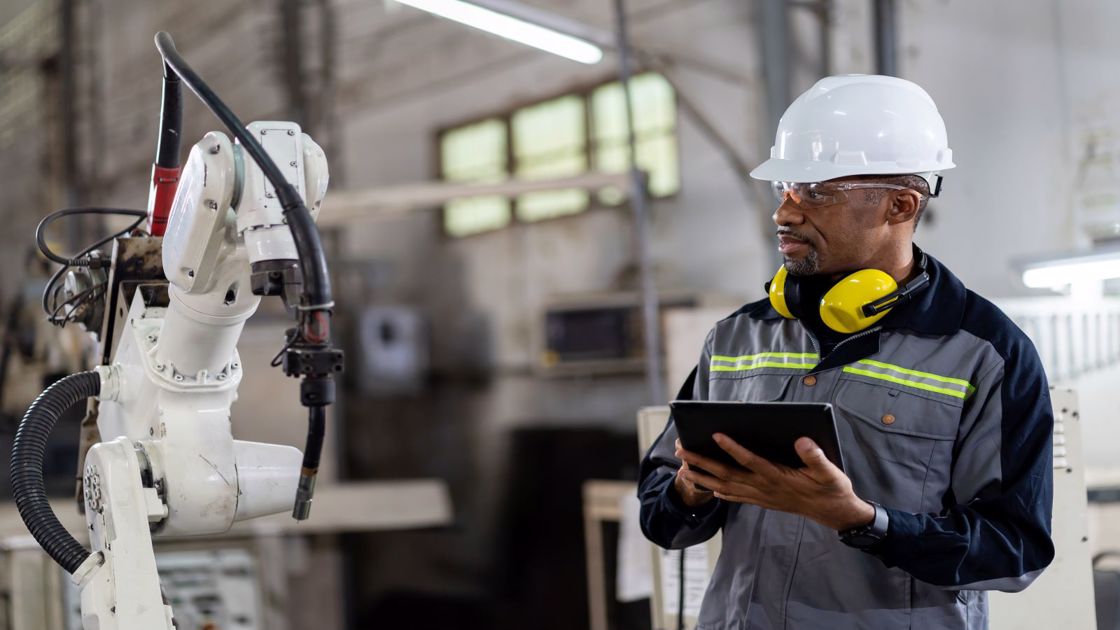social partners must shape and regulate digitalisation at the workplace
Artificial Intelligence has enormous potential to transform innovation and production. Some studies suggest that the digital transformation, including AI, will lead to a net growth in the number of jobs over the next decade. The question is: Where are these jobs, and what will be needed to ensure that these are quality jobs?
IndustriAll Europe just published a position that analyses key challenges for workers and their representatives related to the introduction of AI and guidance on how these can be addressed. A key challenge in this context is to ensure that workers performing jobs today, that will be taken over by AI, will receive the necessary qualifications to perform the new and transformed jobs of tomorrow.
Only if the existing workforce is actively involved in shaping the digital transition will this transition be a Just Transition. Workers’ representatives must be fully - and in a timely manner - involved in the introduction and shaping of new systems in the workplace. As AI is a disruptive technology with a significant impact on workers, employment, and management, all stakeholders need to be closely involved in the negotiations on which technology is needed, and for what purposes. Workers and their representatives must be able to take informed decisions on this, and to properly assess technology before it is introduced in their company. They need to have timely access to meaningful and comprehensive information, and enough time and resources to process it with the support of external experts of their choice.
Management needs to provide workers with:
- Full transparency regarding the aim, scope and functioning of the AI application, including a roadmap showing how to integrate the application in the business process;
- Full transparency regarding the nature of the data being collected, including the parameters relevant for data recording and evaluation, as well as data storage and data protection, including rights of access to the data;
- Full transparency regarding the foreseeable repercussions for the workers.
Only then can it be ensured that the technology contributes to quality employment and a healthy work environment.
For the European trade unions in manufacturing industries, AI should not merely substitute human labour and increase work intensity. AI should augment human labour, contribute to a maximum level of occupational safety and health, and protect humans from fatigue and a loss of autonomy at work.
While a political debate is taking place in the European Parliament on a possible AI regulation, AI applications are already being rapidly deployed at the workplace, supporting process optimisation and helping HR with algorithmic management. Furthermore, the AI Act, which is mainly an internal market regulation, leaves important areas unregulated, especially with regard to the employment relationship.
It is therefore urgent to ensure that workers and their representatives are prepared to address the AI challenge at the workplace. With the guidelines adopted at its Executive Committee meeting on 25 May, industriAll Europe provides recommendations for action for workers and their representatives on how to ensure that AI contributes to quality employment and does not become a dystopian technology. We are, however, only at the beginning of this debate and the discussion will continue for some time to come.
Isabelle Barthès, industriAll Europe Deputy General Secretary:
“Together, social partners must shape and regulate digitalisation at the workplace, and in particular AI, to bring clear benefits for both workers and companies. Workers’ involvement and collective bargaining are key to finding balanced solutions to the challenges presented by AI. Workers should be informed and consulted regarding all automated tools used by management to supervise work. They should be capable of giving their informed consent, which means that full transparency of the systems in question is required.
Regulation is one side of the coin. AI literacy is the other. Achieving AI literacy requires a timely anticipation of skills needs and a forward-looking up- and reskilling of the existing workforce. This is the best guarantee of human digital oversight.”
IndustriAll Position on AI: EN, DE, FR
Contact: Andrea Husen-Bradley (press and communication), Jan Brauburger (policy adviser)
